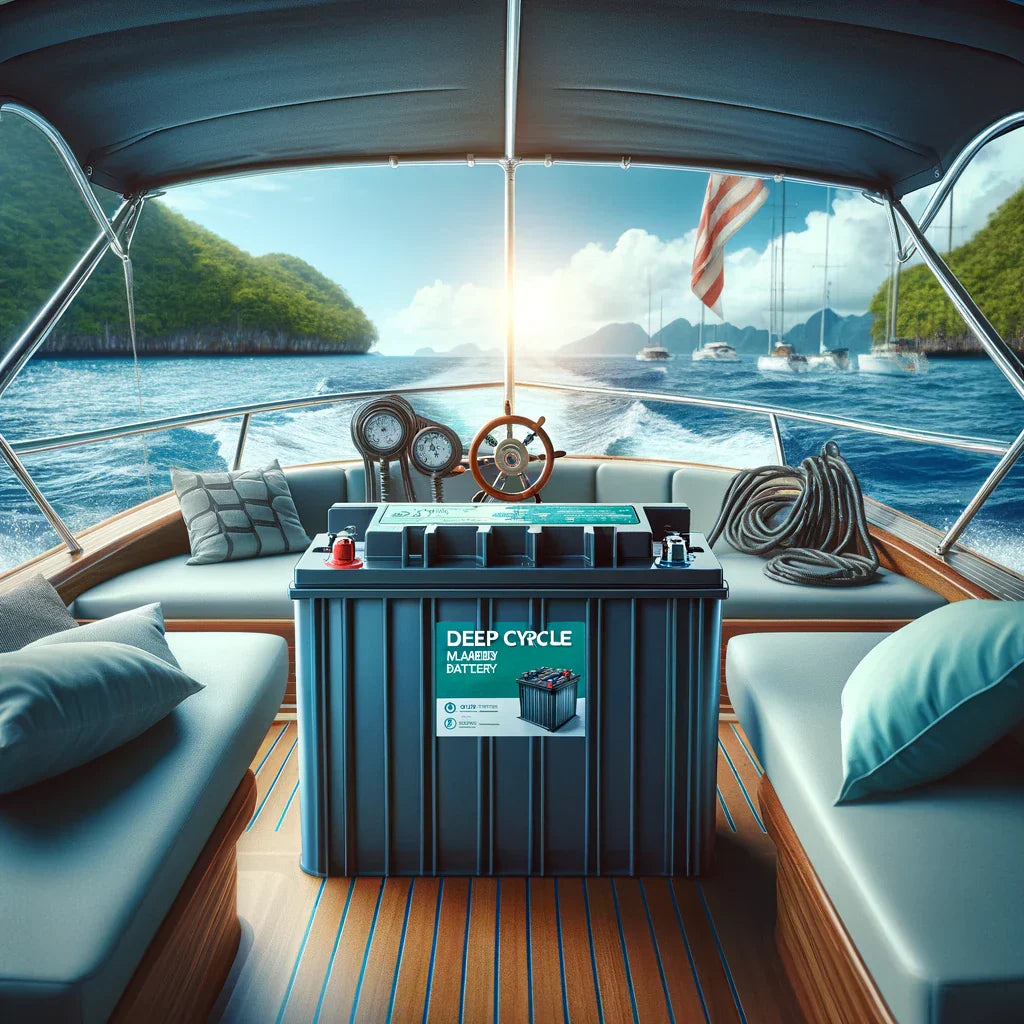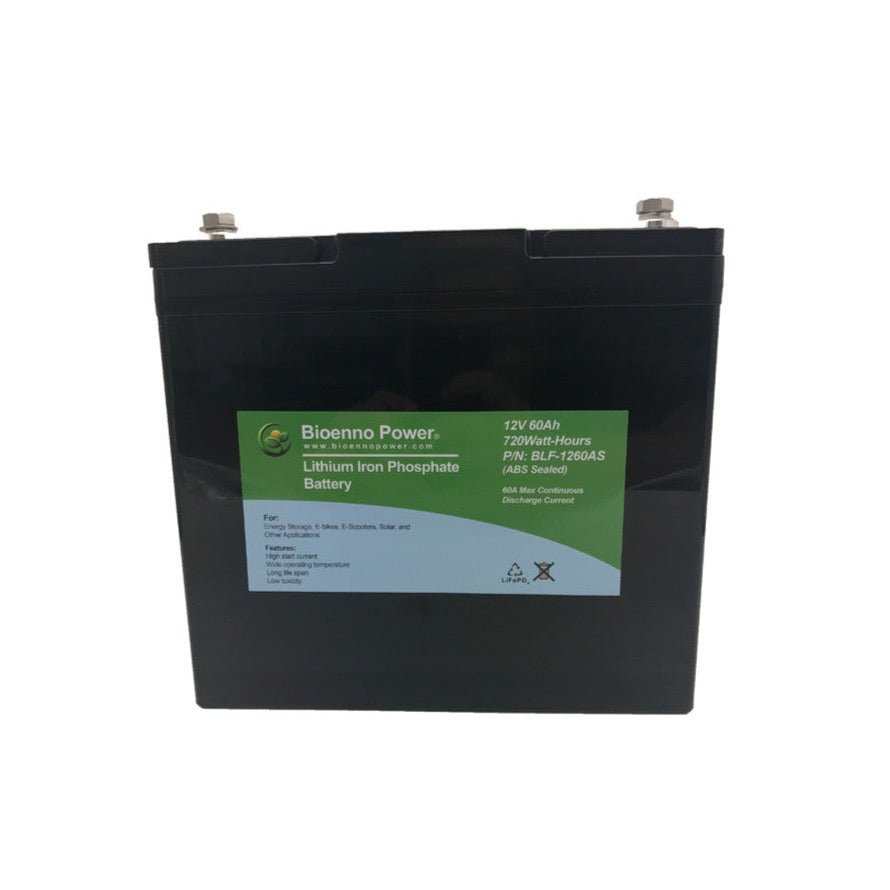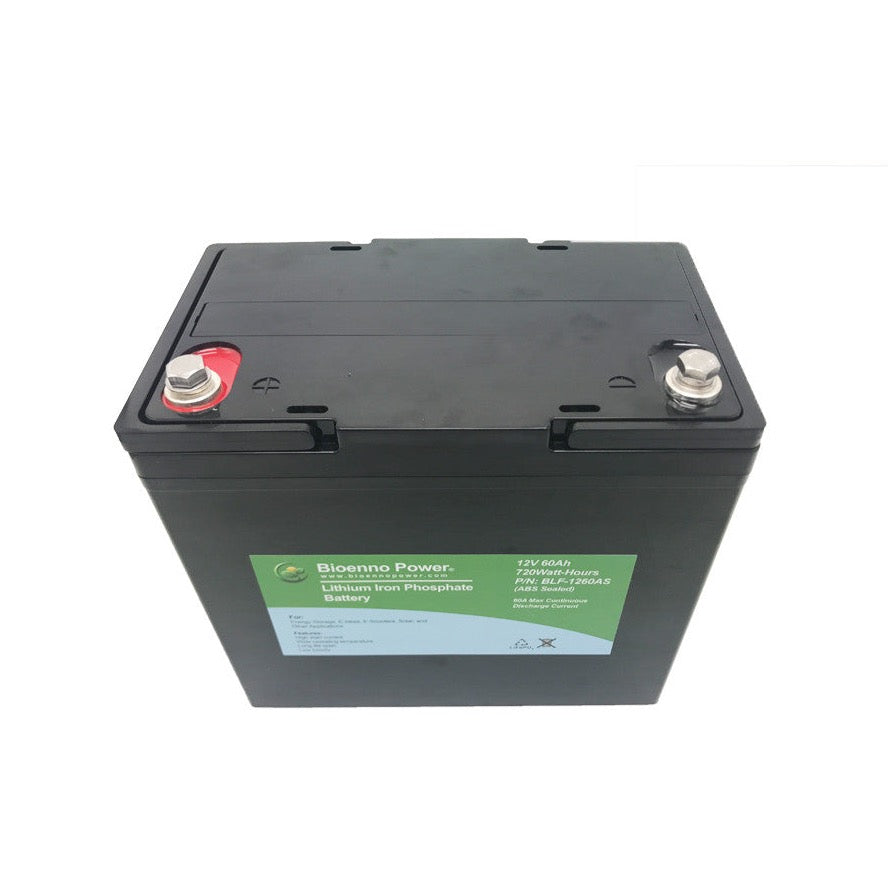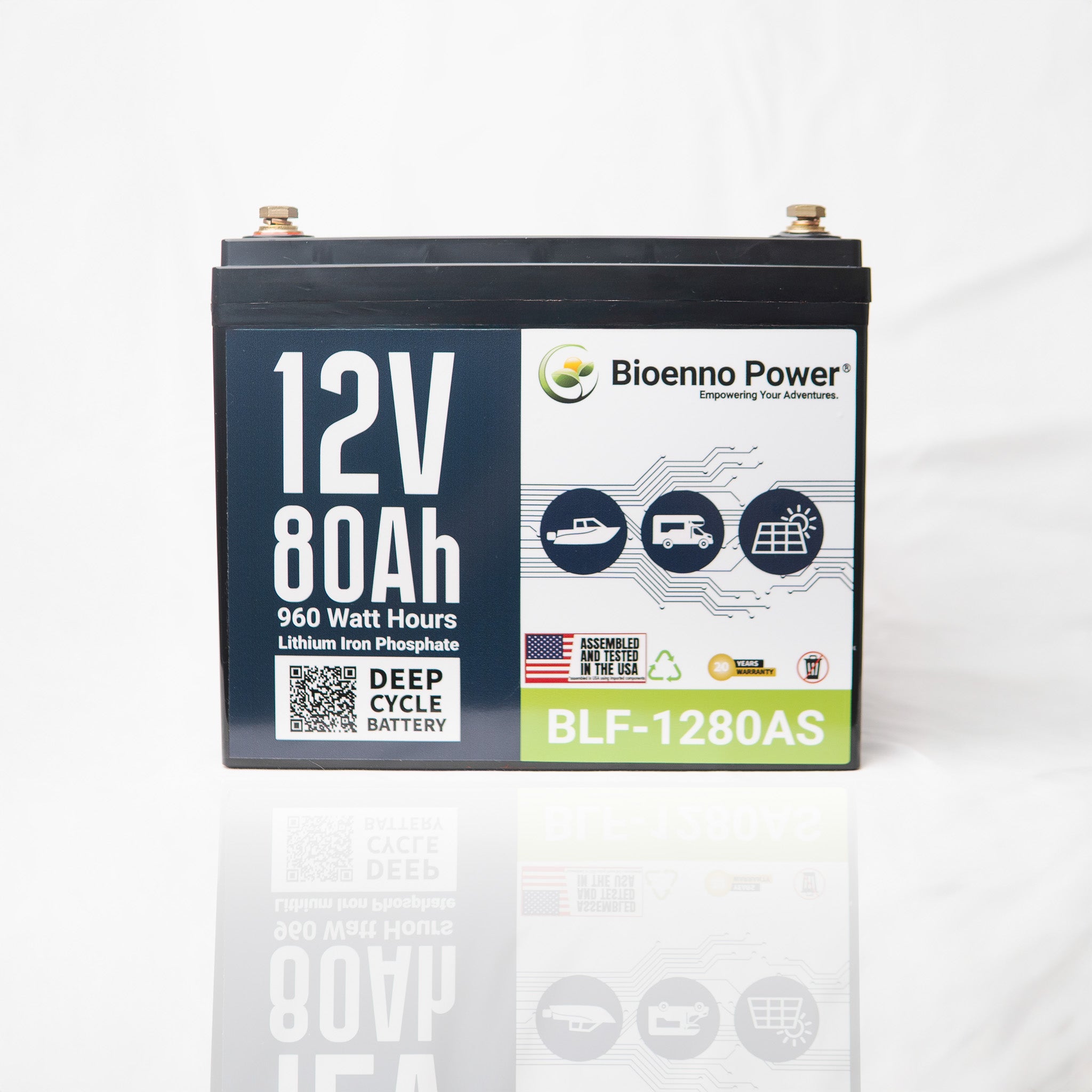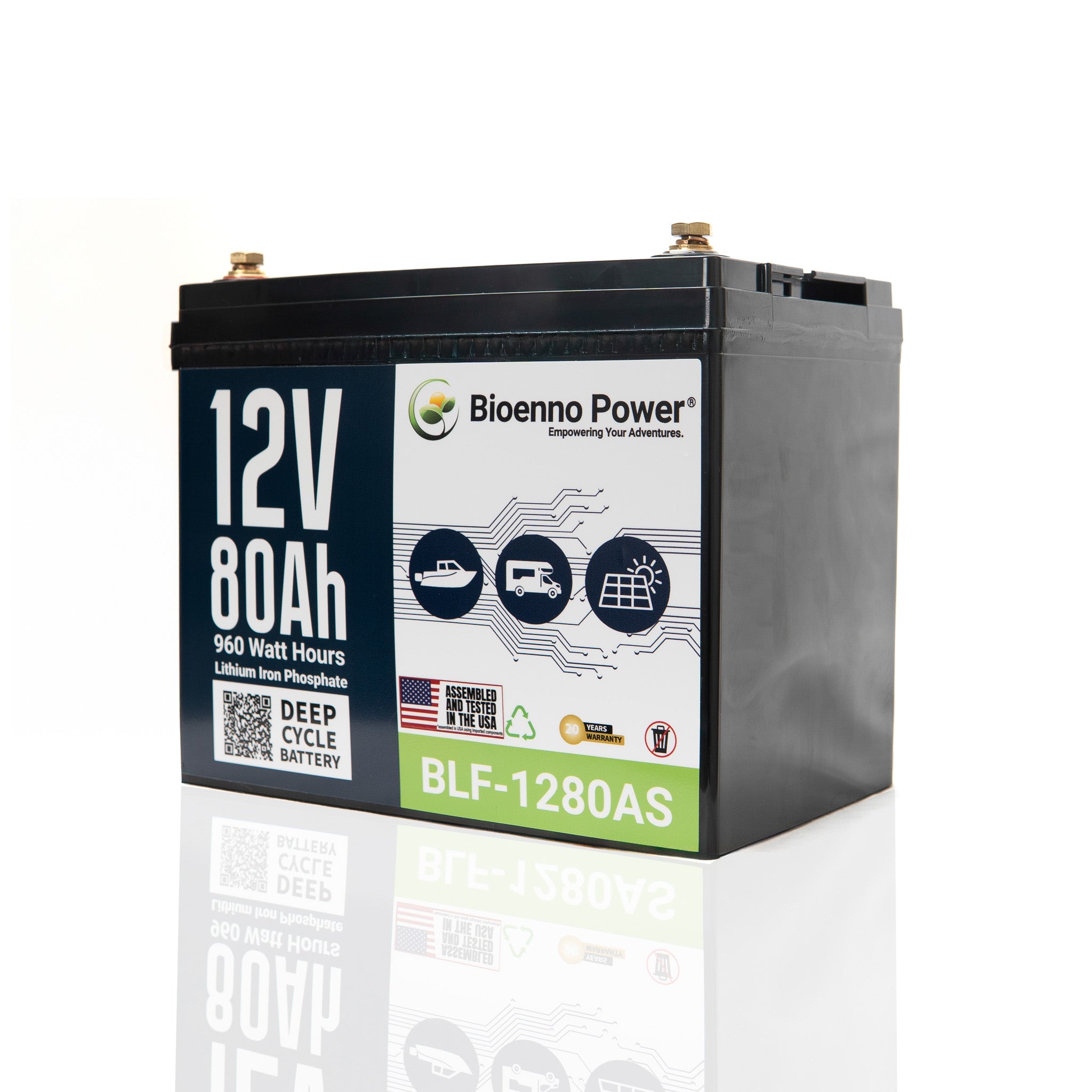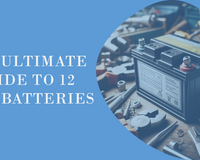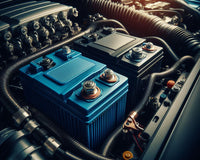When it comes to powering your aquatic adventures, deep cycle marine batteries are the unsung heroes. Whether you're a seasoned sailor or a weekend boater, understanding these batteries' nuances can enhance your experience on the water. This comprehensive guide, structured in a question-based format, aims to shed light on the most common inquiries about deep cycle marine batteries.
1. What Exactly Is a Deep Cycle Marine Battery?
A deep cycle marine battery is engineered to provide a steady amount of power over a long period. This contrasts with standard car batteries, which are designed to deliver a quick burst of energy to start the engine. Deep cycle batteries are ideal for marine applications like powering GPS systems, lights, and other electronics on your boat, where a reliable and consistent energy source is critical. Learn more about Deep Cycle Marine Batteries: Power of Deep Cycle Marine Battery
2. What Are the Different Types of Deep Cycle Marine Batteries?
There are three main types of deep cycle marine batteries: flooded lead-acid, absorbed glass mat (AGM), and lithium. Flooded lead-acid batteries are cost-effective but require regular maintenance. AGM batteries offer better vibration resistance and are maintenance-free, making them a favorite among boaters. Lithium marine batteries, while more expensive, provide long life, quick charging, and a high energy density.
3. How Do I Choose the Right Size and Capacity for My Boat?
Selecting the appropriate size and capacity for your marine battery is crucial. Battery capacity, measured in ampere-hours (Ah), determines how many amps a battery can deliver over a set number of hours. The right capacity depends on your boat’s electronic demands and the duration of use without recharging. A careful assessment of your boat’s manual and some professional advice can lead to the right choice.
4. What Is the Lifespan of Deep Cycle Marine Batteries?
The lifespan varies based on the battery type and maintenance. Flooded lead-acid batteries generally last 3-5 years, while AGM batteries can reach up to 6 years. Lithium marine batteries have the longest lifespan, often exceeding 10 years with proper care. Consistent maintenance, including appropriate charging and storage, is key to maximizing lifespan.
5. How Should I Charge My Deep Cycle Marine Battery?
Charging your marine battery correctly is vital. Using a charger that suits your battery type and specifications is crucial. Overcharging and undercharging can lead to reduced battery life and performance issues. Investing in a smart charger, which adjusts the charge rate based on the battery’s condition, can be beneficial.
6. What Is the Importance of Cold Cranking Amps in Marine Batteries?

Cold Cranking Amps (CCA) measures a battery's ability to start an engine in cold temperatures. Though it's more relevant to starter batteries, a higher CCA rating in marine batteries is beneficial, especially in colder environments, ensuring reliable engine starts.
7. Can I Use a Deep Cycle Battery for Starting Engines?
Deep cycle batteries are primarily designed for prolonged energy supply, not for starting engines. However, some are dual-purpose, providing enough cranking power for engine starts while offering deep cycling capabilities. These are suitable for smaller boats with limited space.
8. What Should I Know About the Discharge and Recharge Cycle?
Understanding the discharge and recharge cycle is important. Avoid deep discharging, as it can harm the battery’s lifespan. It's advisable not to drain the battery below 50% capacity and to regularly fully recharge it after use to maintain its condition.
9. What Are Some Maintenance Tips for Deep Cycle Marine Batteries?
Proper maintenance involves regular cleaning, ensuring tight connections, and keeping the battery charged. For flooded lead-acid batteries, maintaining electrolyte levels is necessary. Storing the battery in a cool, dry place and using a maintenance charger during the off-season prolongs its life.
10. What Safety Precautions Should I Take When Handling Marine Batteries?
Always prioritize safety. Wear protective gear, ensure proper ventilation to prevent gas build-up, and disconnect the battery before working on the boat's electrical system. These precautions help avoid accidents and injuries.
11. How Do Marine Batteries Impact the Environment?
Marine batteries, particularly in disposal, can have environmental impacts. Lead-acid batteries contain harmful substances and must be recycled properly. Lithium batteries, though more eco-friendly, also require special end-of-life handling. Choosing environmentally responsible options and disposing of batteries correctly is important.
12. What Are the Latest Innovations in Marine Battery Technology?
Recent advancements focus on efficiency and environmental sustainability. Innovations include improved lithium batteries with longer lifespans, enhanced safety features, and solar charging capabilities. These developments are set to improve the boating experience while reducing environmental impacts.
13. How Do I Conduct a Cost-Benefit Analysis of Different Battery Types?
When selecting a marine battery, consider the total cost over its lifespan. AGM and lithium batteries may have higher upfront costs but offer longer lifespans and lower maintenance, potentially making them more cost-effective over time.
14. What Are Commonly Asked Questions by Boaters Regarding Marine Batteries?
Boaters often have specific queries like the best battery type for infrequent use, how to switch batteries while on the water, and the ideal number of batteries for their boat size. Addressing these unique needs ensures a tailored and efficient boating experience.
15. What Does the Future Hold for Marine Batteries and Boating?
The future of marine batteries is intertwined with renewable energy and sustainable practices. With the boating industry leaning towards eco-friendly solutions, future marine batteries are expected to be more efficient, powerful, and environmentally considerate.
Conclusion
In conclusion, a deep understanding of deep cycle marine batteries is essential for a safe and enjoyable boating experience. By choosing the right battery, maintaining it well, and keeping up with technological advancements, boaters can ensure a dependable and eco-friendly power source for their marine journeys. Want more Marine Deep Cycle Batterie information, check out our other articles: The Ultimate Checklist for Your Deep Cycle Marine Battery Before Setting Sail

